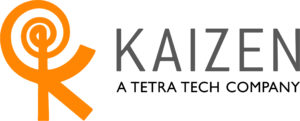The Kaizen Company is the prime contractor for the USAID funded Pakistan Capacity Development Services (PCDS) Indefinite Delivery Indefinite Quantity (IDIQ) contract. Kaizen leads a consortium of local implementing partners including Crowe Horwath, VTT Global, and the Lahore University of Management Sciences to provide services that strengthen fiduciary accountability in relation to USAID missions. Services provided include institutional assessments, risk mitigation measures, and capacity building for USAID implementing partners.
Support Which Implements Fast Transitions (SWIFT) provides USAID’s Office of Transition Initiatives (OTI) with the means to support U.S. foreign policy objectives by catalyzing local initiatives to advance stability, peace, and democracy in response to complex political crises. Under SWIFT-Programs task orders are issued for which Contractors will a) establish, staff, manage, operate, and support a flexible, quickresponse mechanism capable of administering and implementing targeted activities under OTI Country or Regional Programs; and b) provide support to program-funded USAID personnel.
Support Which Implements Fast Transitions (SWIFT) provides USAID’s Office of Transition Initiatives (OTI) with the means to support U.S. foreign policy objectives by catalyzing local initiatives to advance stability, peace, and democracy in response to complex political crises. SWIFT-Support is restricted to Small Business Set-Aside. Under SWIFT-Support task orders are issued for which Contractors will a) recruit and deploy long term technical assistance to support OTI program operations, and, b) provide support to program-funded USAID personnel.
The Resilience Objective (RO) of the Building Resilient and Inclusive Communities in Conflict (BRICC) activity is to foster resilience and stability in conflict-affected communities across Syria to prevent the re-emergence of extremist groups such as Islamic State in Iraq and Syria (ISIS); counter the influence of malign actors such as Iran; empower communities to negotiate a peaceful resolution to the conflict; and pave the way for safe, dignified, and voluntary return of internally displaced persons (IDPs) and refugees. BRICC Task Order (TO) Contractors are expected to achieve this RO by working with stakeholders to achieve five intermediate results (IR):
- Essential services restored and accessible;
- Inclusive, participatory, accountable, and transparent governance strengthened;
- Livelihoods restored and economies revived;
- Access to education and vocational training expanded; and
- Access to healthcare, mental health, and psycho-social support services expanded. To achieve this RO, BRICC TO Contractors are expected to apply an integrated, multi-sectoral, conflictsensitive approach across all IRs. TO Contractors are expected to coordinate and collaborate closely with other USAID and U.S. Government (USG) activities and like-minded donors.
Syria is the primary place of programmatic performance. BRICC program efforts will initially launch in areas outside of Regime control in northeast Syria. If the political, legal, and security situation permits, BRICC may expand program efforts to other parts of Syria.
The Kaizen Company became a MOBIS contract holder in 2012. MOBIS is a General Services Administration (GSA) Schedule available as a contracting mechanism for all federal agencies of the United States Government to enable streamlined procurement from pre-qualified contractors, like Kaizen. Under MOBIS, government purchasers can place task orders with Kaizen at pre-negotiated labor prices, with no need to review and justify requirements, allowing Kaizen to offer its services to other federal agencies through a streamlined process.

